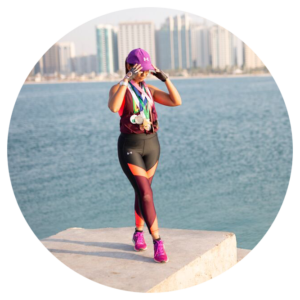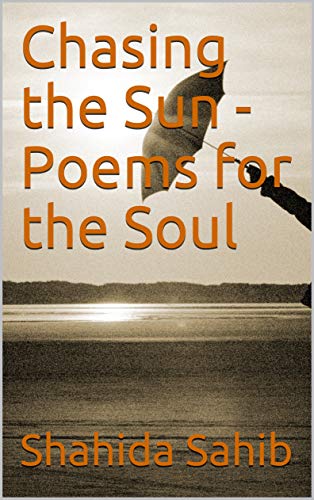
I wish all my brothers and sisters a Blessed Month!
Religion is personal, and I don’t prefer to write about it because I respect everyone’s faith. This year I couldn’t resist especially since I have been practicing intermittent fasting for two years now. I can see the results of eating at certain times and how it has improved my overall well -being.
So why not attempt a dry fast during the month of Ramadan and challenge yourself?
Ramadan is an inspiring and motivating month for me. I feel that it can make a huge difference in our lives.
Ramadan is more than just staying away from food and drinks.
I hope that you will try to practice it even if it is just for one day.
Why is Ramadan important?
Ramadan is a holy month when eating is forbidden throughout the day. You do not have to be Muslim too fast. We live in a global world where we have the choice to practice and learn from others. I have known many people from different faiths curious about Ramadan. Friends have given fasting a try and have had positive results.
Imagine a day without eating? Unfortunately, this is a reality for many poor people. We are so blessed to be able to eat what and when we want.
Do we stop and think of what it feels like not to have food? How can we? We are blessed to have a meal, whether it is a gourmet dish or a simple, humble recipe prepared by ourselves.
There are millions of people around the world who fast daily because they are too poor to have a regular meal.
To me, the month of Ramadan reminds me to remain grateful for the food I can eat. This month allows me to reflect on my eating choices and to stay humble.
Many people break their fast according to family traditions and culture, but there is no right and wrong way. Islam teaches us to practice intention.
When the sunsets and it is finally time to break your fast, the feeling you have towards your food is appreciation. How you break, your fast is your choice.
I feel that exercising self-control throughout the day should be rewarded with good healthy food! You can eat healthier meals and drink more water.
Yes, we are sacrificing and practicing our faith, but we should stay mindful of our intentions. Your body does not need to consume unhealthy calories too fast.
The 30-day fasting is compulsory for all Muslims, but Islam does make exceptions. If you choose to celebrate with the millions of Muslims this month, the most important thing to remember is that a strong mind can result in a strong body. I will be consuming more fruits and vegetables, and proteins this month to achieve my health goals.
What is Ramadan?
It is the ninth month in the Islamic lunar calendar.
Ramadan is one of the five pillars of Islam. During the month of Ramadan, believers refrain from eating and drinking from sunrise until sunset. The country and continent determine the duration of fasting. I can be breaking my fast in Abu Dhabi, while my family in South Africa might still need to wait until the sunsets. It is truly unique how the rising and setting of the sun. determines when we will eat. Fasting allows us to practice self-control and self-discipline.
How do we know when to start fasting?
All Muslims anxiously await the first day because it depends on the sighting of the moon. We usually fast for 30 days, but this also depends on the sighting of the new moon. When the new moon is sighted, we will celebrate Eid al-Fitr, a three-day celebration.
Why do Muslims fast?
The history of Islam and the Quran defines how we practice our faith. Ramadan is compulsory for all Muslims from the age of puberty onwards.
There are five pillars in Islam!
- The Declaration of Faith (Shahada)- The belief that there is only one God, and Mohamed S.A.W, our prophet, is the Messenger of Allah.
- Prayer (Salat) – Practiced five times in a day.
- Zakat is about giving to charity and helping the less fortunate and poor.
- Practice fasting during the month of Ramadan.
- Performing Hajj, which is a Pilgrimage to Mecca- This depends on financial stability. People who cannot afford it are not obligated to complete the pilgrimage.
Self – control
During the holy month, Muslims should try to live in peace. We should refrain from becoming angry and impatient with others. It is a peaceful month that allows us to change our negative habits to a more positive way of living.
There is a list of Don’ts that guides every Muslim to stay on the spiritual path.
- Do not lie and alter the truth.
- Do not act abusive, shout, and swear.
- Do not listen to loud music.
- Do not use bad language.
- Do not wear disrespectful clothing.
Discipline
You have 30 days to change old habits. The holy month is an opportunity to let go of bad habits. It is encouraged to spend the month praying and seeking forgiveness. It is a month of peace and quietness. We always have so much noise in our lives. This month allows us to take time for ourselves. We are not thinking about eating and drinking, so we have time to do other things.
Forgiveness
We can find peace within ourselves. When you forgive others, you lighten your life! Ramadan allows us to reinvent ourselves. We can change old ways and discover peaceful ways to live.
Start a new healthy lifestyle.
People are always trying to find the best diets that work! Sustaining food and drinks all day allows your body to reset itself. When you finally break your fast, you can eat healthier options.
In 30 days, you will feel and look different. I recommend incorporating a good exercise routine after you break your fast.
https://www.lifehack.org/articles/lifestyle/10-benefits-of-fasting-that-will-surprise-you.html
Spirituality
During the Holy Month, we have the opportunity to pray more and connect with Allah. It is a time given to you to become spiritual and create positive changes in your life.
Charity
“Those who spend in charity will be richly rewarded” -Al Quran 57:10
People become more charitable during Ramadan. There is a deeper connection with the community, and people want to help each other. We should always give to charity and help, but during Ramadan, we can observe the month’s blessings more, and it is incredible to witness how people can care for each other.
People who are not obligated to fast during Ramadan.
Fasting is compulsory for all Muslims who can sustain food and drink from sunrise until sunset. But there are exceptions.
- Children that have not reached puberty.
- Pregnant women- This depends on the women’s health and wellbeing. I fasted while I was pregnant.
- Breastfeeding mothers- If you can fast while breastfeeding, you should consult a doctor just in case.
- Menstruating women.
- Older people with medical conditions.
- Physically and mentally ill people.
- People that need to take medications – Always check with your doctor before attempting to fast.
- Travelers – It is good to pay back the days you could not fast. Many Muslims choose to fast after Eid!
“The best of medicines is Fasting and Resting” – Benjamin Franklin
Have a Blessed & Healthy Month !
Superlady




Leave a Reply
Tell me what you think.